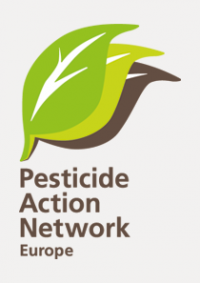Many people assume that herbicides, since they are designed to kill plants, are not toxic for bees. This, however, is far from the truth. In this summary we provide scientific findings that reveal that glyphosate-based herbicides (GBH) are toxic to bees in many ways. Bees are exposed to this chemical either by direct contact or by ingestion via food and contaminated water.
Our research shows that the herbicide:
- disrupts the gut microbiome and makes the bees more susceptible to disease
- disturbs development of bee brood (the eggs, larvae and pupae of the bees)
- can negatively affect thermoregulation of the bumblebee colonies
- has a negative impact on the reproduction of wild bees and honeybees
- disrupts their foraging abilities and navigation
- has a negative impact on bees’ learning ability and memory
Interaction with other chemicals (cocktail effect) and also other ingredients (e.g. co-formulants) used in glyphosate-based herbicides can significantly increase toxicity. All these negative effects in combination significantly weaken the colony and its survival.
Furthermore, a large number of studies confirm the unavoidable and unacceptable risks of glyphosate to the environment, especially to aquatic species and to soil biota. These ecotoxicological threats suggest that glyphosate does not meet the approval criteria of the EU Pesticides Regulation (EC) 1107/2009, which aims to ensure that pesticide active substances and products placed on the market do not adversely affect human or animal health or the environment, including honey bees. Therefore, in light of the scientific evidence re-authorization of glyphosate in the EU should not be granted for this reason alone.
Glyphosate has raised concerns as it has been linked to different negative effects on human health. Most importantly, the International Agency for Research on Cancer classified glyphosate in 2015 as “probably carcinogenic to humans”. Scientific research suggests that human exposure to glyphosate may also cause endocrine disruption, Parkinson’s disease and microbiome alterations that can lead to the suppression of the immune system. Therefore the use of glyphosate should be banned due to its impact on humans as well as the environment. Here, we focus on the impact of glyphosate on bee-health, which is less known to the general public and policy-makers.
Read further HERE.
